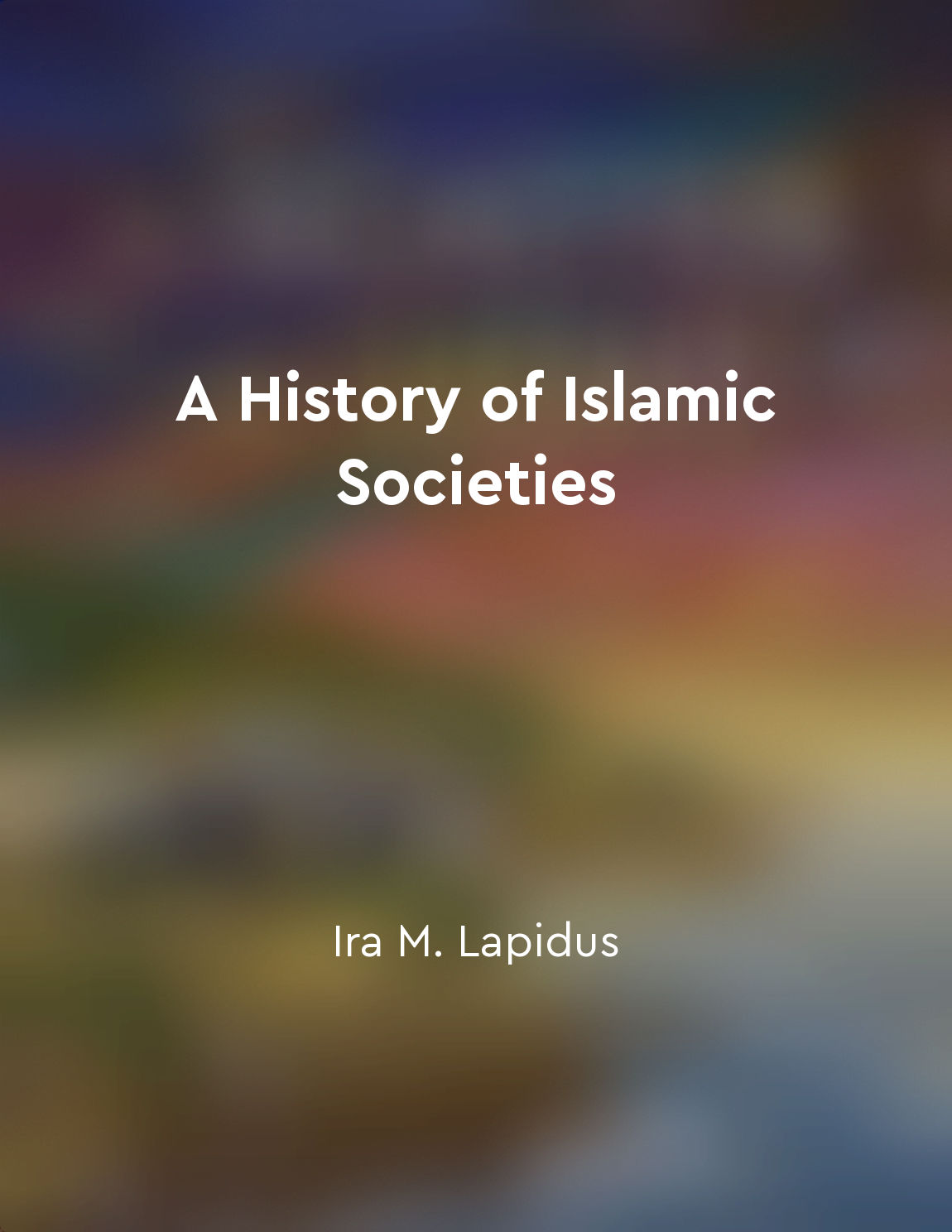Islamic societies were influenced by interactions with other cultures from "summary" of A History of Islamic Societies by Ira M. Lapidus
Islamic societies have not existed in isolation from the rest of the world; rather, they have been shaped by interactions with a variety of cultures throughout history. These interactions have been crucial in influencing the development of Islamic societies in terms of politics, economics, art, and other aspects of life. One of the most significant ways in which Islamic societies have been influenced by other cultures is through trade and commerce. As Muslim merchants traveled across vast regions, they came into contact with people from diverse backgrounds and were exposed to new ideas, technologies, and goods. This exchange of goods and knowledge not only enriched Islamic societies but also helped to connect them with the wider world. Moreover, Islamic societies have also been influenced by interactions with other cultures in terms of religion and philosophy. The spread of Islam, for example, brought the teachings of the Quran and the Prophet Muhammad to a wide range of societies, many of which had their own religious traditions. This interaction led to the blending of Islamic beliefs with local customs, resulting in the development of unique and syncretic forms of Islam in different regions. Furthermore, Islamic societies have been shaped by interactions with other cultures in the realm of art and architecture. For example, Muslim rulers and elites often patronized artists and architects from different cultural backgrounds, leading to the fusion of various artistic styles and techniques. This cultural exchange not only enriched Islamic art but also helped to create a sense of shared heritage among diverse communities.- The history of Islamic societies is marked by a long tradition of interaction with other cultures. These interactions have played a crucial role in shaping the development of Islamic societies in a variety of ways, from trade and commerce to religion, philosophy, art, and architecture. By engaging with different cultures, Islamic societies have not only enriched themselves but have also contributed to the diversity and richness of the global cultural landscape.
Similar Posts
Cultural diplomacy through art
Cultural diplomacy through art is a powerful tool used by nations to foster understanding, build relationships, and promote the...
Taboos and superstitions
Taboos and superstitions have been observed across various cultures and societies, where certain actions or objects are deemed ...
Economic policies of the Prophet
The Prophet's economic policies were based on justice and equality. He ensured that wealth was distributed fairly among all mem...
Hādīth literature evolved over time
The development of Hādīth literature is a complex and multifaceted process that unfolded over several centuries. Initially, the...

The Quran provided a unifying foundation for Islamic societies
The Quran, as the holy scripture of Islam, played a crucial role in providing a common foundation for Islamic societies. This u...

Cultural exchange promotes global unity
The interconnectedness of the world is evident in the exchange of ideas, beliefs, and values across cultures. This exchange ser...
Scholars play a vital role in preserving and transmitting Hadith
Scholars hold a crucial position in the preservation and transmission of Hadith. They are responsible for ensuring the authenti...

